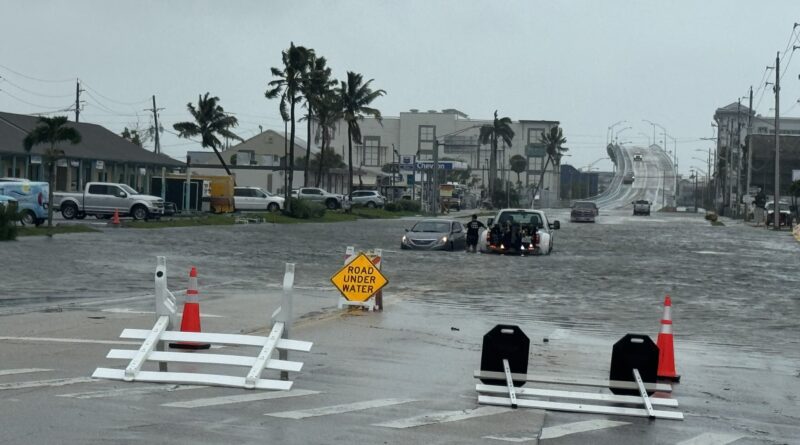Project 2025: a threat to Florida’s climate science and public safety
The only thing scarier than a category 4 hurricane ravaging Florida, is not having the proper infrastructure in place to help keep Floridians informed and safe. No, I don’t mean the infamous Overseas Highway or the dangerous Interstate 4. I mean the National Weather Service (NWS), a subagency of the National Oceanic and Atmospheric Administration (NOAA), which not only forecasts the weather, but provides warnings of hazardous weather to the public. NOAA is a science-based agency and the hub of much of the federal research around climate change.
Both of these vital agencies are on the chopping block if Project 2025 goes into effect. If implemented, this Heritage Foundation inspired wish list of federal government dismantling would significantly alter the landscape of federal climate science infrastructure, with far-reaching implications for public safety, economic stability, and environmental policy.
We are well past the point where ignoring the issue of climate change will make it go away. Eliminating NOAA and NWS are just two dangerous examples of how Project 2025 would put countless Americans—in particular, Floridians who rely on hurricane forecasting and flood warnings—in peril’s way.
Project 2025, proposes sweeping changes to federal agencies, such as shrinking some federal departments and agencies while eliminating others most closely associated with climate science. While proponents argue these changes would streamline government and reduce spending, the truth is Project 2025 could jeopardize crucial climate research and disaster preparedness efforts.
At the heart of this debate lies NOAA’s National Hurricane Center, which plays a vital role in forecasting and tracking hurricanes, providing early warnings that save lives and mitigate property damage. On page 675 of the blueprint, the authors highlight the six main offices which comprise NOAA, citing the offices “form a colossal operation that has become one of the main drivers of the climate change alarm industry and, as such, is harmful to future U.S. prosperity.” In turn suggesting NOAA, “current organization corrupts its useful functions. It should be broken up and downsized.” However, any reduction in their capabilities could have serious consequences, particularly for coastal states like Florida that are vulnerable to tropical storms.
Beyond hurricane tracking, federal climate science agencies contribute to a wide range of critical functions. They conduct long-term climate monitoring, research sea-level rise, and provide data that inform both public policy and private sector decision-making. Businesses rely on this information for risk assessment, long-term planning, and investment strategies.
Dismantling NOAA and unraveling climate policy would risk public safety and undo years of scientific progress, creating a dangerous knowledge gap, leaving us vulnerable to the increasing threats posed by climate change. For Florida, a state with over 1,300 miles of coastline, the stakes couldn’t be higher. Rising sea levels, intensifying storms, and changing weather patterns all pose significant risks to our communities, economy, and way of life.
Moreover, the economic implications of such a move are staggering. Florida’s tourism industry, in 2022, contributed over $100 billion annually to the state’s economy, and relies heavily on accurate weather forecasting and climate data. The fishing industry, another crucial sector of Florida’s economy, depends on NOAA’s oceanographic research to maintain sustainable practices and adapt to changing marine ecosystems.
Furthermore, the dismantling of federal climate science infrastructure would severely hamper international cooperation on climate issues. NOAA and other agencies play a crucial role in global climate monitoring networks and contribute significantly to international climate agreements. Weakening these institutions would not only diminish America’s leadership role in climate science but also hinder global efforts to address climate change.
As Floridians, we must recognize the vital importance of robust federal climate science infrastructure to our state’s future. The proposed changes in Project 2025 represent a short-sighted approach that prioritizes ideological goals over public safety and long-term economic stability.
Can some federal agencies use a haircut? Sure. But flat out eliminating those that center research, better forecasting tools, and increased preparedness measures to face the climate challenges ahead is just putting your head in the sand. For the sake of Florida’s safety, economy, and future generations, we must choose science, preparedness, and responsible governance over ideology and short-term political gains.
Originally written for and published on The Invading Sea.

